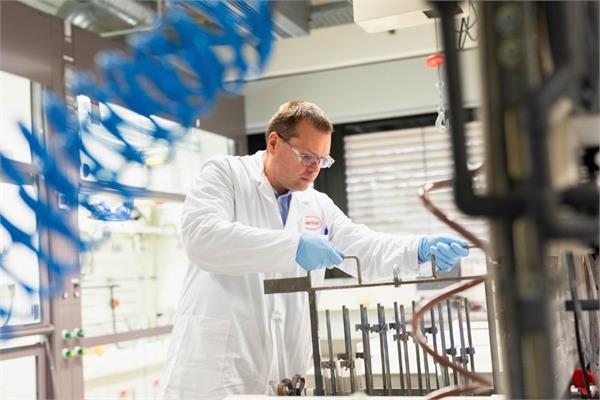
Henkel’s Bonderite M-AD 2000A is a sustainable additive that allows anodising baths to operate at temperatures of up to 24 °C, compared with the conventional 18–20 °C. The higher operating range reduces the energy required for cooling and extends bath life, without compromising the performance or durability of the anodised layer.
Henkel has recently launched Bonderite M-AD 2000A, a new additive designed to make the anodising of aluminium both more efficient and more sustainable.
Developed specifically for companies engaged in aluminium anodising, whether as a direct surface treatment or as part of a pre-anodising process, the additive promises notable gains in process and energy efficiency. By operating at higher temperatures, cooling demand is reduced, while the formulation lowers sulphuric acid consumption by around 25 %. It also cuts aluminium loss by a quarter and shortens process times by an average of 15 %. With a more stable bath chemistry, service life is extended by up to 25 %, reducing the need for disposal and replenishment.
“Our customers are looking for ways to make their production processes more sustainable and cost-effective without compromising on quality. Bonderite M-AD 2000A delivers exactly that: an additive that demonstrably saves costs, energy, and materials while ensuring consistent results,” has stated Darshan Mehta, Business Development Manager, Light Metal Treatment, at Henkel.
The additive has been awarded Qualanod certification, underscoring its durability and quality. Tests in coastal regions such as Hook of Holland and Genoa confirmed its resilience under long-term outdoor weathering conditions. The product has now been approved for use by all member companies of the international Qualanod network.
Initial industrial trials carried out under real production conditions further demonstrated the benefits, including significant energy savings, reduced chemical use, and consistent coating results. With testing successfully completed and international approval secured, Bonderite M-AD 2000A is now available across Europe and will be gradually introduced to global markets where aluminium anodising is a key production process.